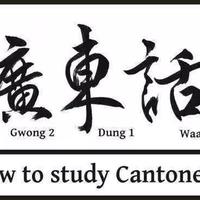bed 床
bed|bed
|cama
bed Bed
кровать кровать
喺 好 耐 好 耐 以前 , 有 一個 成日 都 瞓 得 唔 好 嘅 男人 。
||long||long||||every day||sleeping|||||man
|bueno|largo|bueno|largo|hace tiempo|había|un|siempre|siempre||dormir||bien||hombre
Before Hao Nai Hao Nai, there was a man who was ill-adjusted all day long.
ハオナイハオナイの前には、一日中体調不良の男性がいました。
呢 個 男人 成日 覺得 自己 張床 下面 好似 有人 。
||man|all the time||himself|his bed|under||
este|este|hombre|todo el día|cree|sí mismo|cama|debajo|parece|hay alguien
This man Cheng Il felt like there was someone under his bed.
この男Chengilは彼のベッドの下に誰かがいるように感じました。
佢 又 驚 嗰 個人 會 偷 佢 屋企 啲 嘢 , 又 怕 佢 會 殺 咗 佢 , 所以 瞓 得 好 差 。
|again||that|||steal||home|things|things||afraid|||kill|past action particle||||||badly
|otra vez|temer|||va a|robar||casa|||también|temer||podría|matar|||así que||dormir|muy|mal
He was surprised that he would steal his house and company, and he was afraid that he would kill him, so he was so bad.
彼は自分の家と会社を盗むことにショックを受け、彼が彼を殺すことを恐れていたので、彼はとても悪かった。
每一晚 , 呢 個 男人 瞓 之前 都 會 檢查 吓床 下面 有 冇 人 先 瞓 。
every night|||man|sleeps||||check|check the|under the bed|||||sleeps
cada noche|partícula interrogativa|este|hombre||antes|siempre|va|revisar|cama|debajo|hay||persona|antes|
Every night, before a man sleeps, he will check to see if there is someone under the bed first.
この男は毎晩、怖いベッドの下に人がいることを確認してから見ています。
不過 當 佢 瞓低 咗 嗰陣 , 佢 又 會 驚 床 下面 有人 , 所以 起身 再 檢查 多次 。
|when||lie down|past tense particle|that time||again||afraid|bed|underneath|||get up||check|
solo|cuando||se acostó||esa vez||otra vez|va a|asustarse|cama|debajo|hay alguien|así que|se levanta|otra vez|revisar|varias veces
However, when she sleeps low, she will be surprised that someone is under the bed, so she will get up and check again.
しかし、彼が叫んだとき、彼は再びベッドの下で誰かを驚かせたので、彼は立ち上がって数回チェックしました。
佢 每 一 晚 都 會 不停 重覆 噉樣 , 不停 睇 嚟 睇 去 , 過 咗 幾個 鐘 之後 先 至 瞓 到 。
|||||||repeat||non-stop||||||||hours|||only then||
|cada|uno|noche|siempre|va|sin parar|repetir|así|sin parar||||ir|pasar||varios|horas|después|solo|hasta||hasta
彼は毎晩同じことを繰り返し、周りを見回し、数時間後に最初に到着します。
Щовечора він повторює те саме, продовжує озиратися і прибуває першим через кілька годин.
呢 個 男人 終於 結 咗 婚 喇 。
||||got married||marriage|
este|clasificador|hombre|finalmente|casarse||matrimonio|partícula de acción completada
この男はついに結婚した。
雖然 佢 冇 同 佢 老婆 講過 呢 一件 事 , 但 係 佢 老婆 慢慢 都 知道 咗 佢 瞓 得 有 幾 差 。
||||||talked about|||||||||||||||||bad
aunque|||a hablar||esposa||esta|una|cosa||sí||esposa|poco a poco|también|sabe||||dormir|está|tan|mal
あなたは彼の妻と何かについて話しましたが、彼の妻は彼がいかに悪いかを徐々に知っています。
最後 , 佢 老婆 終於 忍唔住 要 同 佢 講 喇 :「 老公 , 不如 你 去 睇 吓 醫生 啦 。」
||wife|finally|Can't help|||||particle indicating a completed action|husband|how about||||to see||
finalmente||esposa|finalmente|no pudo soportar|tiene que|con|él||partícula de finalización|esposo|mejor|tú|ir||ver|médico|partícula final de oración
In the end, his wife finally couldn't help but talk to him: "Husband, why don't you go and scare the doctor."
結局、彼の妻はようやく彼に話さずにはいられなかった。
之後 , 佢 就 聽 咗 佢 老婆 講去 咗 睇 醫生 。
||||past action particle||wife|said|||
después|||oyó|pasado||esposa|dijo|||médico
After that, he listened to his wife and went to see the doctor.
その後、妻の話を聞いて医者のところへ行きました。
佢 同 醫生 講完 佢 嘅 情況 之後 , 醫生 就 話 喇 :「 你 呢 個 病 好 易 醫 啫 !
|||finished speaking|||condition||||said|||||illness||easy to treat|doctor|just
|con|médico|terminó de hablar|||situación|después|médico|entonces|dijo|partícula de finalización|tú||este|enfermedad|muy|fácil|curar|
医師は自分の状況について話し合った後、「あなたの病気は治療が簡単です!
你 帶 我 去 你 屋企 啦 。」
|take|||||
あなたは私をあなたの家に連れて行きます。 」
佢 帶 咗 醫生 去 佢 屋企 之後 , 醫生 就 用 把 鋸 鋸 斷 晒 佢 張 床 嘅 四 隻 床 腳 。
|took|past tense particle|||||||||a|saw|saw|cut off|all||his|||four|legs|bed|legs
|llevó||médico|ir||casa|después|médico|entonces|usó|sierra|sierra||cortar|todo||de la|cama||cuatro|cuatro|piernas|piernas
医者を家に連れて行った後、医者はのこぎりを使ってベッドの4本の脚を切り落としました。
從此以後 , 佢 就 每晚 都 瞓 得 好好 喇 。
from now on|||every night||sleeps|sleeps||now
de ahora en adelante||entonces|cada noche|siempre||sueña|bien|ya
それ以来、彼は毎晩見ました。

